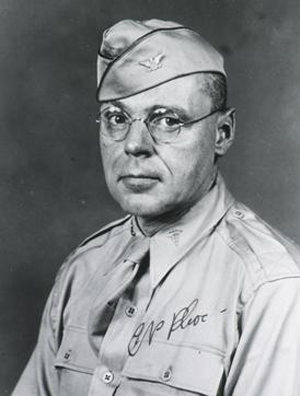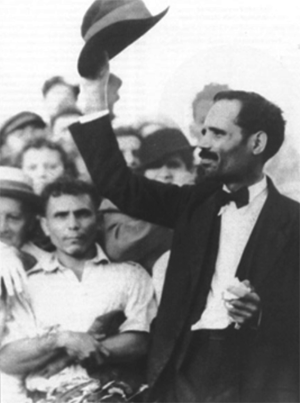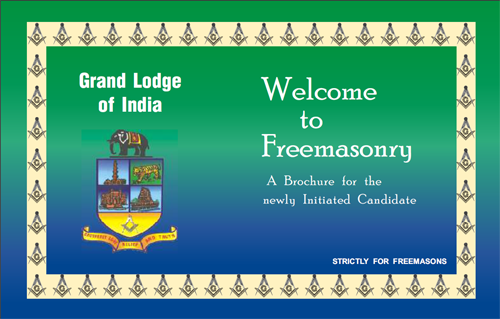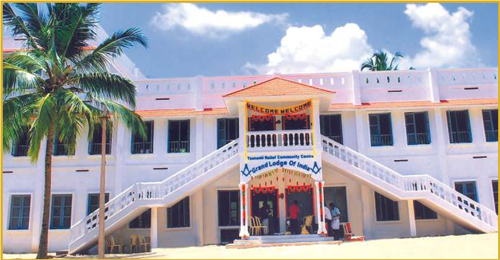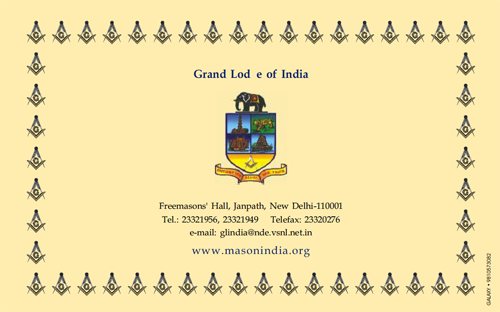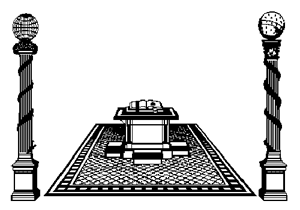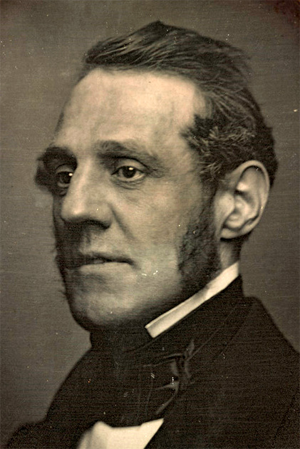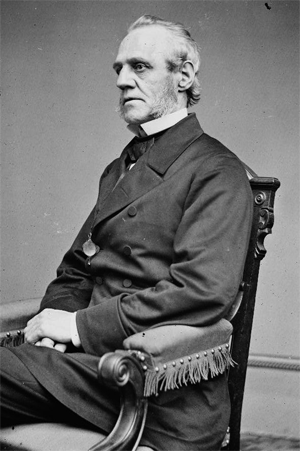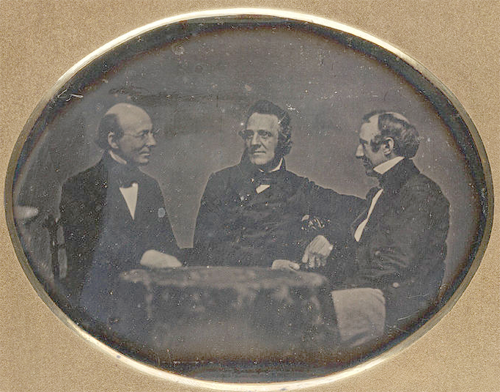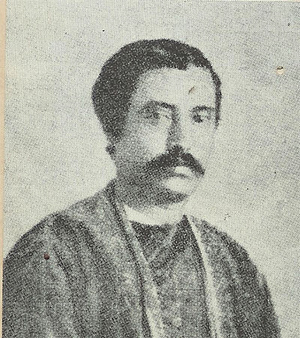"Above All Nations Is Humanity": "Maluna a'e o na lahui a pau ke ola ke kanaka"
by Kalidas Nag, M.A., University of Calcutta, D. Litt., University of Paris[Dr. Kalidas Nag, Visiting Professor in the Oriental Institute of the University of Hawaii, delivered this address at the Annual Commencement of the University, June 22, 1937.]
University of Hawaii Bulletin
Volume 16, Number 8, June, 1937
I
My predecessor on this platform, Dr. Edwin R. Embree, President of the Julius Rosenwald Fund, told you last year of his grand aspiration and his realistic dream: the birth of the "New Civilization" through the "mingling of the East and West." Some dreams are just fantastic and illusory; others are based on our deepest longings and hopes, peopling the world of our subconscious being, and hence their potency and positive character.
In a 1944 address in Nashville, Tennessee, on July 4—provocative both for its timing and its substance—[Edwin R. Embree] proclaimed the coming of a new order in race relations and international affairs. The war, he predicted, would shift the center of world politics from Europe and the Atlantic to Asia and the Pacific. China and Japan would be major powers, demanding equal status with the U.S., Great Britain, and the Soviet Union and, he asserted, they would expect fair treatment for their distant relatives in North America. More than a year before Japan’s surrender, with the battle for Saipan raging as he spoke, he cautioned against an occupation of the conquered country based on vengeance, rather than one that would allow the Japanese people to divest themselves of their military rulers and become a force for world peace.
-- Edwin Embree As Exemplar: How One Philanthropic Leader Confronted Racial Prejudice During The Second World War, by Alfred Perkins
The Orient suffered from serious historical mutilations and psychological distortions but it is a reality in human history. So, too, the Occident is very much of a reality today, almost dictating the pace of the modern world. Politically and economically the East and the West have often been found to be in conflict, because of maladjustments and misunderstandings. Culturally, the two hemispheres of Humanity are indispensable partners in a vast cosmic drama. These are not mere figures of speech but basic realities. And speaking on this solemn occasion, before my departure from this noble University to participate in the World Conference on Education in Tokyo, which takes as its major topic of discussion "A Twentieth Century Program of Education," I beg leave to affirm that our future education should and must be based on an adequate synthesis of eastern and western cultures. With all its aggressive sense of superiority, western education and culture appear today to be terribly inadequate, judged from the standpoint of moral progress and peace for mankind. So, with all its traditions of spirituality and renunciation, the eastern life and society are darkened today by an atmosphere of poverty, despair, and ignorance dangerously subversive to the world order. The western methods of dividing and dominating the East are doomed to failure; and no less so the eastern reactions against the West, either to treat it as a dangerous "enemy" or a successful "barbarian."
It is indeed a tragic irony of history that the two sister civilizations, so complementary to one another, have not yet found their "Laboratory of Synthesis" in most of our universities of the East and the West. Western science and technology are invading the eastern schools and colleges, divorced pathetically from the correctives of the creative life of the West manifested through her Arts and Literature. So, also, a sprinkling of "Orientalism" is found in the western institutes of higher education in their syllabi of Sociology, Anthropology, Comparative Philology, and such other humanistic studies. But even academic approaches of the Occident to the Orient are vitiated often by an unconscious condescension, a veiled imperialism, or colonialism actual or potential. Thus even the so-called modern Humanities are tainted by the original sin of "the un-human"; and consequently our observations and studies are just materials for the exploitation of one another's weaknesses!
When and how should we organize a new World Education Board, based on mutual respect and cooperation, which alone can drag us out of this quagmire of suspicion and hatred, threatening the peace of the world? This is a challenging question which has to be faced and answered, not only by our universities and cultural organizations but also by our political and economic trusts which are facing today the serious charge of betrayal of trusts! We accuse no one, and we invite one and all in reorganizing the World Trust, without which world security and peace are mere illusions. With malice for none and charity for everyone, we shall join hands, men and women of today and tomorrow, to rebuild the neglected and often desecrated Temple of Humanity, singing in chorus with our whole soul the sublime song of the Pacific expressed in the words inscribed at the entrance gate of this University, both in the musical Hawaiian language and in English:
"Maluna a'e o na lahui a pau ke ola ke kanaka."
"Above All Nations Is Humanity."
Facing, as I do, the representatives of some of the outstanding nations of East and West, here under the harmonious sky of Hawaii, I cannot help expressing some of the doubts and aspirations of our generation. Doubts, if any, have got to be boldly faced; and aspirations severely tested in the light of reality. I know that many of us have become skeptical about the possibility of our nationhood naturally evolving into Humanity. Some are asserting that to reach Humanity one must outgrow nationhood. That again appearing to be a problematic, nay dangerous, experiment, some swing to the opposite extreme, saying that to safeguard our nationhood we must throw overboard the cult of Humanity!
A few of us suspect, however, that whether we like it or not we float, move and have our being on the infinite ocean of Humanity which ultimately supports and regulates the variegated flotilla of diverse nations. Each nation-boat may imagine itself to be self-contained and independent of the others; but all of them stagnate or push forward according to their special rhythmic adjustments with the deep undercurrents of the ocean of Humanity. It is sheer foolhardiness to ignore the ocean while we are lost in our special dances on our particular boats. It may be wise and graceful to adjust our steps with the elemental rhythms of the dancing waves. Our sophisticated civilization has a fair chance of surviving if it learns the moral lesson of the superb technique of Hawaiian surf-riding. Every nation from East or West, must learn this basic rhythm of Humanity or be engulfed for good. Several apparently invincible nations have thus been submerged in history, emerging only as archaeological fossils of a dead past, crowding the galleries of our museums. The lesson of history is clear and it is for us of this modern age to make a choice: suicide or survival, war and extermination or peace and fulfillment of life? The twentieth century confronts us with this life-and-death question. Our entire thought and action should grapple with these vital issues if we are objective enough to visualize the future, and realistic enough to accept the lessons of science and history.
We know that despair and doubts are darkening our horizon today. From the awful experience of the last World War we learned what a penalty we shall have to pay if we follow again blindly the dictates of egotism and greed, leading inevitably to violence and war. Europe tried that path and may try it again and again. Asia, older in age and experience, ever speaks through her great seers that it is wiser to renounce than to grab, and that peace is more effective than war in the social economy and hygiene of Humanity. Twenty-five centuries ago India promulgated through her great sons, Mahavira and Buddha, the great principles of Non-violence (ahimsa) and Fraternity (maitri). The selfsame messages go out to the world from the makers of modern India, as Gandhi and Tagore.
Ram mohun Roy (1772-1833), the Father of Modern Indian Renaissance, and a junior contemporary of George Washington, sounded the keynote through his essays on comparative religion, harmonizing the apparently conflicting creeds of the East and the West, of Hinduism, Islam and Christianity, laying the foundation of the first Universalist Church (Brahmo Samaj) of India. Freedom of speech and self-expression for all men and women, freedom of worship, freedom for womanhood and her equality with man are some of the problems tackled in a spirit of tolerance and peace which so endeared him to Jeremy Bentham that he saluted Rammohun Roy as his "beloved collaborator in the service of Humanity." The history of India from Rammohun Roy to Tagore and Gandhi is that of a progressive humanization. So it is but natural that two of our leaders of Asiatic Renaissance, Tagore and Gandhi, are deeply interested in the noble experiment that America is making here in the heart of the Pacific. Before sailing from India to join the University of Hawaii, I requested Mahatma Gandhi to send a message to the students of this University, and these are his words:
"I have no inspiring message to give to anybody if non-violence is not its own message. But I can state my own experience of nearly fifty years of practice that there is no force known to mankind which is equal to non-violence. It cannot however be learned through books. It has got to be lived."
-- MKGandhi
Here Gandhi is speaking not simply for his own people but for Humanity as a whole. Those who accept Gandhi only as a national leader do not know his preoccupations for the welfare of mankind, irrespective of creed or color. When America was celebrating the fourth centenary of her discovery, in 1893, Gandhi was opening his heroic campaign of non-violent resistance to the inhuman treatment of man by man in South Africa.
Though Gandhi was concerned for the plight of the Indians of South Africa, he shared the racist beliefs of the Theosophists. Of white Afrikaaners and Indians, he wrote: “We believe as much in the purity of races as we think they do.” Gandhi lent his support to the Zulu War of 1906, volunteering for military service himself and raising a battalion of stretcher-bearers. Gandhi complained of Indians being marched off to prison where they were placed alongside Blacks, “We could understand not being classed with whites, but to be placed on the same level as the Natives seemed too much to put up with. Kaffirs [Blacks] are as a rule uncivilized—the convicts even more so. They are troublesome, very dirty and live like animals.”
Gandhi and Mussolini became friendly when they met in December 1931, with Gandhi praising the Duce's "service to the poor, his opposition to super-urbanization, his efforts to bring about a coordination between Capital and Labour, his passionate love for his people." He also advised the Czechs and Jews to adopt nonviolence toward the Nazis, saying that "a single Jew standing up and refusing to bow to Hitler's decrees" might be enough "to melt Hitler's heart."
-- The Untold Story of Gandhi and Theosophy, by David Livingstone
His activities aroused the attention of no less a personality than Leo Tolstoy. The venerable author of "War and Peace" exchanged several letters with Gandhi which you may read in the volume "Tolstoy and the Orient," published by Paul Birukoff, the disciple of the Russian sage in the last few years of his life.
A little earlier, about 1888, another great thinker and artist of Europe, Romain Rolland who would be the noblest interpreter of Gandhi and his non-violence in the West, also corresponded with Tolstoy. Privileged to collaborate with Mon. Rolland in his study on "Mahatma Gandhi," I saw in 1923, in his Swiss home, the original letter of Tolstoy in reply to the poignant questionings of that adolescent French artist who immortalized himself by writing the epic novel "Jean Christophe" and his Lives of Illustrious Men: Beethoven, Michael Angelo, and Tolstoy. Spending his last days studying Oriental religions, Tolstoy left this world in 1910; and within four years the so-called civilized world plunged itself into an orgy of destruction and carnage rarely paralleled in history. The old world motto "Love Thy Neighbor" was coolly replaced by "Kill Thy Brother!" In the face of that awful sacrilege against all religions, Rolland, the symbol of the awakened conscience of the West, wrote that magnificent vindication of humanity: "Above the Battlefield" and his "Appeal" to the elite of all nations to save modern civilization from utter wreckage. Since then, for the last twenty years, Romain Rolland, the master interpreter of music and musicians, has been trying to hold aloft the torch of Humanity in this age of nationalistic obscurantism. It is a rare privilege for me to make his solemn voice also join in this superb symphony of the souls of many nations which naturally drew the sympathy of the great European harmonist. Receiving from me an account of the quiet and constructive work of my friends of this American territory, radiating inter-racial amity, and specially hearing about the noble outlook of internationalism in our University of Hawaii, Romain Rolland sent me by air mail the following lines:
"I am happy to feel the growth of this new family. We are brothers born of the same spirit of human unity and universal communion. Those who are realizing that in harmony, are happy indeed in that Eden of Hawaii. Here, where I am, in Europe, we must accomplish the same through the tumult of strifes. We are the archers of the Gita. We do not fight ourselves; we fight for the welfare and liberty of all those to come and to build the grand Union of all Nations, the sovereign harmony rich and complex; the symphony which weaves into one garland the beautiful and embracing accords of the whole earth....
To fraternal friends
Of all nations
at the University of Hawaii
With my affectionate greetings.
-- ROMAIN ROLLAND."
These words of the most musical prophet of modern internationalism will, I am sure, gladden your hearts, my friends and students of this University: Hawaiians, Americans, Chinese, Japanese, Filipinos, and Portuguese -- all enjoying a common culture in a common democracy. I urge you young graduates, going out to the world, to be proud of your Alma Mater and to serve the cause so nobly championed by her. I strengthen my appeal by reminding you of the prophetic words of a great American who addressed you last year: "A population descended from the various stocks of Europe and Asia, from Polynesia and the other islands of the Pacific, is here making a new race and a new culture . . . Appropriately enough, the birthplace of this new culture, compounded of the best of the East and the West, is in the group of islands situated midway between the western world and the Orient."1
India of three hundred and fifty million souls, that vast sub-continent of many races, religions, and cultures, would always be with you in your pursuit of cultural fellowships which is the keynote of Indian history and which, I hope, will be the guiding light of all national histories. My Alma Mater, the University of Calcutta, to which I am grateful for this opportunity to serve you for a while, is so glad to learn about your bold experiment that our Vice Chancellor presented your library with all our research publications -- an example which will be followed by many other universities and learned societies of India.
Through ages India maintained the proud tradition of free cultural exchange, ever since the days of our ancient universities of Taxila and Nalanda. And modern India, nay the entire New Orient, would ever be proud of the fact that its greatest living poet-philosopher, Tagore, came to vindicate Humanity insulted and crucified by the "carnivorous and cannibalistic" nationalism during the last world war. As early as 1899 Tagore wrote that soul-stirring poem "The Sunset of the Century." So in 1917, with the unerring judgment of a prophet, Tagore exposed in his "Nationalism" the festering sores of our modern history. Returning in 1921 from the devastated areas of war-mad Europe, Tagore, with little else but his grand dream to support him, transformed his rural school of Santiniketan into the first international university of India, the Visva Bharati. Here Asiatics, Africans, Europeans, and Americans, Christians and non-Christians, have found their haven of meditation for the welfare of Humanity in that "Abode of Peace." As a member of its governing body, I had the honor of introducing your Professor Sinclair to our venerable Founder-President; and the poet-laureate of Asia, on behalf of India and the Orient, gave this benediction on the Oriental Institute of the University of Hawaii:
"I congratulate the authorities of the Hawaii University for the wise step they have taken in starting an Oriental Institute under its auspices. For this distracted world of ours nothing is perhaps so much needed today as a proper understanding between and appreciation of the cultures of the East and the West. That also is the mission of my university Visva Bharati. Hawaii, situated as it is in the midst of the seas that separate the East from the West, is preeminently fitted to be the center of such an institute and I offer it my best wishes for a glorious and useful career."
-- Rabindranath Tagore
II
It is distinctly a pathological symptom, ominous for our human family, that while countless millions of men and women are hungering for peace, a few politicians are stampeding the nations into rearmament, making war almost inevitable. Collective security is a pious fraud if it is only regional and not universal. It is regrettable that while the experts of the International Labor Office and of the League of Nations are bringing out indisputable evidences showing that cooperation is the only solution of our tragic problems, the tariff walls and muffled war drums are threatening us on all fronts, western and eastern. But, towering high above these vagaries of nationalistic politics and economics, are the clear verdicts of the "Representative Men" of the East and the West. Numerically negligible yet spiritually invincible, these poets, philosophers and philanthropists -- our Tagores, Rollands, and Gandhis -- declare with one voice that the basic religion of mankind is just to be human and that "Humanity is above all Nations."
So, before taking leave of you, I beg to entrust to you of the newborn Pacific race, my concrete dream of a "Laboratory of Human Relations." This University of Hawaii is to me more than a chance experiment of America in the field of international education. It plays the symbolical role of reconciling the glorious traditions of American democracy with the noble Hawaiian traditions of good-will and welcome for all. Its departments of culture show a rare potentiality of expansion and growth with a rich variety in its ethnic basis and with the immense horizon of its geographical situation.
Before developing the story of my Dream-Laboratory, I sketch here the outline of the cultural chart of America's collaboration with her neighbors. Hawaii is culturally connected with New Zealand and the South Pacific cultures through Tahiti. Situated on the crossroads of transpacific liners and clippers, Hawaii is the most valuable and convenient base for American relations with entire Polynesia and Indonesia, through Japan and China, right up to the farthest western base of America in the Orient, the Philippines. There America, true to her democratic traditions, is going to make the first sincere experiment in autonomy for her Filipino citizens. In the new regime of national self-government, the University of the Philippines and allied institutions, if properly developed would, I hope, render a great service by keeping America in intimate relations with French Indo-China, the Dutch East Indies, India, and the Middle East.
Privileged to inaugurate in this University the first series of lectures on the history, thought and culture of the living nations of India and the Near East, I was deeply impressed by the genuine interest in the subject evinced by the students and the public attending the lectures. Compared with Great Britain, France, and Germany, the United States of America was late in entering the field of Oriental studies, especially of India. She has compensated, however, for her loss of time by her generous investments in archaeological explorations and cultural activities in the Near and the Far East, through her great museums, the American Association of Learned Societies, the American Oriental Society, and other similar organizations. Several American universities and museums are excavating in the sites of the dead civilizations in Egypt and Iraq, in Turkey and Persia. The University of Chicago has developed its grand Oriental Institute. Columbia University has its series of Indo-Iranian classics, and Harvard its Oriental Series mainly devoted to India, and its Yenching Foundation attending to Chinese culture. The pre-historic civilizations of the Indus Valley are being explored by the American Association of Learned Societies and the Boston Museum of Fine Arts. So, Yale University sent several expeditions to the sub-Himalayan regions in search of the fossil man. Yale also shows keen interest in Polynesian studies, as we find from her intimate collaboration with the Bishop Museum which, with its wonderful collections and research records, is a real pride of Hawaii. The scientific activities of the Bishop Museum are supplemented by the young yet most promising Academy of Arts of Honolulu which very appropriately tries to cultivate in the public of Hawaii, not forgetting its most important element, the children, a taste in Oriental art. So the Pan-Pacific Union, the Institute of Pacific Relations, and the Anthropological and Sociological Societies are doing admirable work in the last few years, cooperating with and supplementing the work of the University of Hawaii. The latter has already provided for the study of Japanese, Chinese and Indian cultures, as well as Hawaiian language and literature. This year, the University has taken a momentous step by inviting an expert musician to open systematic courses on Music. May it help to save from corruption and oblivion the noblest arts of Polynesia, its chants, and rhythms, its music and dances, finding, at last, their sanctuary at a conservatory of the University.
The diversity of human interests, the rich complexity of racial types and traditions in and around the University of Hawaii naturally signalize it as the most promising "Laboratory of Human Relations" that America can develop, here in the heart of the Pacific, for the better understanding of mankind. I know that "human relations" and "better understanding" are phrases at the tip of the pen of almost every diplomat and journalist. Over-familiarity seems to have bred a silent contempt for such concepts in this age of refined cynicism. Yet I cannot help reiterating with all the conviction I command that the only way of revitalizing our studies and humanizing our sciences is the way of human relations. So, modifying a little the sonorous words of Danton in the age of the French Revolution, I wish to give to you, of the future generation, the following:
"L'humanite, encore l'humanite, tousjours l'humanite."
"Humanity, more humanity, always humanity!"
Human exploitation and race hatred must stop, or this civilization will just go. Every University of the world boasted of its department of Humanities, and yet owing to the lack of concrete touch of human relations the studies degenerated into dead analysis. That is why in the fire-baptism of mankind in the last World War, so many universities could easily betray human trusts. "Can Nations Be Neighbors?" is the challenging title of a book2 of the learned President of the University of Hawaii; and we can answer that question adequately if we can humanize our academic Humanities.
America rang the Liberty Bell for the whole human race a few years before the French Revolution and the grand Statue of Liberty was very appropriately installed at the entrance of the biggest American harbor on the Atlantic. America is a continent of many races, the dominant ones coming from across the Atlantic. Naturally we find, down to this day, that its academic, political, and cultural outlooks are severely circumscribed by the principles and prepossessions of the Atlantic civilization. This is an unbalanced and unhistorical attitude, as I could not help pointing out while attending, as a delegate from India, the World Writers Congress (P.E.N.) at Buenos Aires. In the crowded auditorium of the leading university of the Argentine Republic I asked and got reply to my question: Since the entire body of the two Americas extending from Alaska to Chile is irrigated, nourished, and built through countless ages by the waves of the immense Pacific, what provision has been made so far for the study of this much-neglected Pacific civilization? It has legitimate claims on full one-half of the body of the New World, and yet how few of the American universities and learned societies are Pacific-minded? The earliest colonizers of America, the pre-historic ancestors of the American Indian, came from the Orient, sometimes walking over the ice-bridges or crossing in skin boats which brought the daring folks across the islands to Alaska, as recently stated by Dr. Ales Hrdlicka, the distinguished anthropologist of the Smithsonian Institution. From that dim past down to our days the Pacific races and cultures have been negotiating with America. Yet, where is the clearing house of the information, not to speak of research centers of Pacific civilization?
Spending these few months in the human atmosphere of the University of Hawaii, fraternizing with the teachers and the students of so many different countries and nationalities, I have felt that this University is the most possible and propitious center for the study of Pacific civilization. Here I met, among the several scholars. of the Pacific basin, professors from Alaska in the north, to New Zealand in the south. So, teachers and students from China, Japan and India are working at our Oriental Institute harmoniously, amidst a thousand material handicaps, to develop a living synthesis of the East and the West, as original as it is comprehensive. Our aim is not the necrology of scientific analysis, abstract and inhuman, but living reactions and interactions of the past, present and future.
III
So I hope that in this "Laboratory of Human Relations" of the University of Hawaii a new faculty of research on Pacific culture and a new chapter in world history may someday be developed through the cooperation and good-will of all nations as neighbors in this world-village. It is significant that two of the leading universities of America, Harvard and Yale, are already Pacific-minded, and I hope that others will follow their example when the case for centralizing Oriental and Pacific research in the University of Hawaii is convincingly demonstrated. Then the Carnegie Corporation would find it necessary to establish a Pacific Division of its Institute of Race Relations;
On August 16, 1947 University of Chicago President Robert M. Hutchins announced the formation of the Committee on Education, Training, and Research in Race Relations. Funded by equal grants of $75,000 from the Carnegie Corporation and the Rockefeller Foundation, the Committee was constituted to be a five-year program under the direction of Louis Wirth, professor of sociology.
-- Guide to the University of Chicago Committee on Education, Training, and Research in Race Relations Records 1944-1962, © 2009 University of Chicago Library
the Rockefeller Foundation would build here laboratories for the study of Oriental and Pacific hygiene; the Carnegie Endowment for International Peace would endow chairs for the study of peace problems of the Orient and Pacific zone. So also the Latin American universities, the universities of China and Japan, of the Philippines and of India, the scientific institutions of Indonesia and of the Near East would gradually come to collaborate with the University of Hawaii, which is the advance-guard of American culture in the Pacific and the Orient. It is the meeting ground of diverse nations of the East and the West. It deserves fully, and will surely draw in the near future, the material and moral support permitting it to fulfill its grand destiny.
Hawaii has often been called the "Geneva of the Pacific," and I plead for the progressive development of the University of Hawaii from a territorial institution into one of the grandest monuments of American internationalism -- a veritable "Pacific Foundation." So many millions have gone to the building up of the departments of Atlantic Civilization. Is it not overdue, this project of a special Foundation for the Study of Pacific Civilization? Arts and sciences, races and literatures would find their special libraries, museums and laboratories. Experts and researchers from all corners of the globe would come here to teach and to learn under this marvellous atmosphere of fellowship. The scholars all the world over would seek the publications of the Foundation for enlightenment; and original texts and translations from the Hawaii University Press would go to enrich the libraries and minds of the various nations. Here is peace, propitious climate, and rare comradeship; only material resources and tools are lacking. Should the Temple of Humanity be postponed simply on that account?
The answer to this question must come primarily from America, although it should come simultaneously from all the nations immediately interested. If we believe in neighborliness as the soul of all religions, and peace as the real criterion of culture, we should try to make our dream a reality. America has installed the Statue of Liberty on her Atlantic basin. May America with the Pacific Foundation of the University of Hawaii dedicate, in the near future, the first statue of Humanity on the Pacific, announcing peace to all her neighbors! Some future Rodin may design that grand statue of Humanity bearing on the pedestal the noble motto of the University of Hawaii, "Above All Nations Is Humanity."
Our ancestors of the Vedic dawn left us the priceless legacy of world-vision through the following profound message: "To see the Self in the Universe, and the Universe in the Self, is the right seeing." A great philosopher of modern India in the Universal Races Congress (1911) pronounced, in keeping with our ancestral wisdom, that "Nationalism is but the halting stage in our onward march to Humanity." So, the greatest poet of India of today, in his Gitanjali which won the first Nobel Prize from the Orient, sang:
"Thou hast made me known to friends I knew not;
Thou hast given me seats in homes not my own;
Thou hast brought the distant near,
And made a brother of the stranger."
This initiation of individual Man into Humanity is the spiritual dowry of India, and I bring the same to you, my young friends of the University. May right endeavor bring you Unity. May right aspirations bring you Unity. May right achievement bring you Unity. Strive and thrive in rearing the Temple of Humanity. It is a task worthy of the future heroes and heroines of the world. I wish you all success, and conclude with the Vedic prayer which came to impregnate the soul of the Pacific as manifested in some of the fragments of the Polynesian Vedas:
"The One who, himself without colour, by the manifold application of his power
Distributes many colours in his hidden purpose
And into whom, its end and its beginning, the whole world dissolves -- He is God!
May He unite us all with propitious Wisdom!"
-- SVETASVATARA UPANISHAD. IV, 1.
_______________
Notes:
1 "The New Civilization: A Mingling of East and West," by Edwin R. Embree, University of Hawaii Occasional Papers No. 30, July 1936.
2 "There is no greater task, no greater opportunity, confronting education than this: to teach the nations of the world to understand their neighbors, to respect their neighbors as themselves. Let us educate for mental disarmament, with assurance that physical disarmament will then take care of itself." David Livingston Crawford, Can Nations Be Neighbors?, page 113. (Boston: The Stratford Company, 1932).

